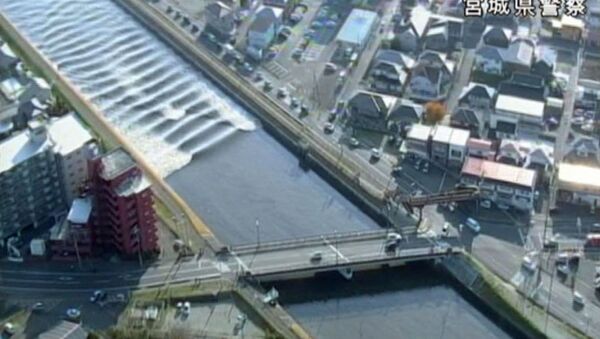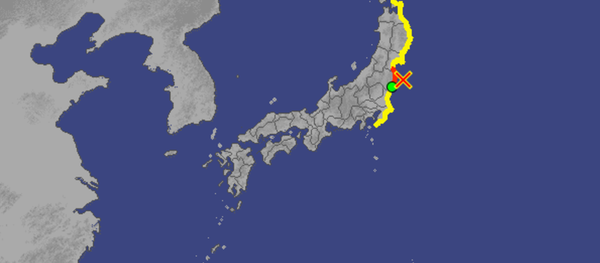TOKYO (Sputnik) — Earlier in the day, the Japan Meteorological Agency reported about the 7.3-magnitude earthquake that hit the eastern part of the country's coast near the province of Fukushima and issued a tsunami warning. Soon after that the agency had updated the magnitude of the tremor to 7.4 and recommended residents of Miyagi and Fukushima prefectures to evacuate,
The media outlet added that the registered waves had not reached the expected level of more than three yards.
Japan is a seismically active region. In March 2011, a 9.0-magnitude offshore earthquake triggered a 46-foot tsunami that hit Japan's Fukushima nuclear power plant (NPP), leading to the leakage of radioactive materials and the shutdown of the plant. The accident is considered to be the world's worst nuclear disaster since Chernobyl.
Following the Tuesday tremor, Japanese authorities prepared to potential tsunami and had stopped the cooling system of the NPP's pool with spent nuclear fuel. According to media reports, the cooling system's activities have already been restored.





